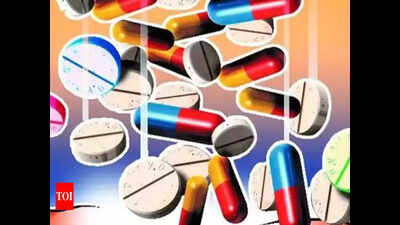- News
- City News
- chennai News
- Spiralling input costs hit production of crucial drugs
Trending
This story is from May 14, 2019
Spiralling input costs hit production of crucial drugs
As several essential drugs get wiped off the shelves in government hospitals across the country, authorities say they are increasingly finding it difficult to find manufacturers to bid for tenders at existing cost.

Representative image
CHENNAI: As several essential drugs get wiped off the shelves in government hospitals across the country, authorities say they are increasingly finding it difficult to find manufacturers to bid for tenders at existing cost. The cost of active pharmaceutical ingredients that are used as raw materials have gone up to nearly double for some drugs. Indian Drug Manufacturing Association says some companies may not survive the present crisis if the Centre does not allow them to increase the selling price.
If that happens, it is likely to cause a shortage of commonly-used drugs such as paracetamol, antibiotics like erythromycin, ofloxacin and azithromycin, and vitamins. At least 80% of the desi manufacturers depend on China for low cost active pharmaceutical ingredient (API). Over the last six months, the Chinese government enforced stricter environment laws and several factories shut down. Those that survived increased cost of APIs have more than doubled for several drugs. The fluctuations in rupee prices against dollar added to the increase.
For instance, the cost of one kilogram of paracetamol, which was 170 in March 2018, went up to 340 the next month and is now being sold at 395. Antibiotic azithromycin which was sold at 8250 per kilogram in June 2018 is now being sold at 9,100 and vitamin B12, which was sold 290 per gram is now being sold at 460 per gram.
"There is steep increase in prices of certain raw materials imported from China. Many companies are bearing the loss because margins have declined. Companies are absorbing the loss because they cannot pass on the price rise to consumers. The prices are fixed by government. Some may be compelled to cut or stop the production when increase is beyond limits. If the government does not allow manufactures to increase prices, some of them may find it difficult to survive," Indian Drug Manufacturers' Association (IDMA) past-president S V Veerramani, who is also the managing director, Fourrts India Laboratories.
Some manufacturers say the increase the immediate impact of the rise in cost will been seen among those who supply generic drugs exclusively to government at very low profit margins. "Government may have no choice but to increase the cost when they call for retender. It will settle down and cost," said state IDMA president J Jayaseelan, also Managing Director of Saimirra Innopharm Pvt Ltd.
If that happens, it is likely to cause a shortage of commonly-used drugs such as paracetamol, antibiotics like erythromycin, ofloxacin and azithromycin, and vitamins. At least 80% of the desi manufacturers depend on China for low cost active pharmaceutical ingredient (API). Over the last six months, the Chinese government enforced stricter environment laws and several factories shut down. Those that survived increased cost of APIs have more than doubled for several drugs. The fluctuations in rupee prices against dollar added to the increase.
For instance, the cost of one kilogram of paracetamol, which was 170 in March 2018, went up to 340 the next month and is now being sold at 395. Antibiotic azithromycin which was sold at 8250 per kilogram in June 2018 is now being sold at 9,100 and vitamin B12, which was sold 290 per gram is now being sold at 460 per gram.
"There is steep increase in prices of certain raw materials imported from China. Many companies are bearing the loss because margins have declined. Companies are absorbing the loss because they cannot pass on the price rise to consumers. The prices are fixed by government. Some may be compelled to cut or stop the production when increase is beyond limits. If the government does not allow manufactures to increase prices, some of them may find it difficult to survive," Indian Drug Manufacturers' Association (IDMA) past-president S V Veerramani, who is also the managing director, Fourrts India Laboratories.
At present, the National Pharmaceutical Pricing Authority, which regulates retail prices, fixed them for a year based on market prices. "It is done only once a year. Instead they should allow pro-rata increase if the cost of the active drug formulation goes beyond 20%," he said.
Some manufacturers say the increase the immediate impact of the rise in cost will been seen among those who supply generic drugs exclusively to government at very low profit margins. "Government may have no choice but to increase the cost when they call for retender. It will settle down and cost," said state IDMA president J Jayaseelan, also Managing Director of Saimirra Innopharm Pvt Ltd.
End of Article
FOLLOW US ON SOCIAL MEDIA










